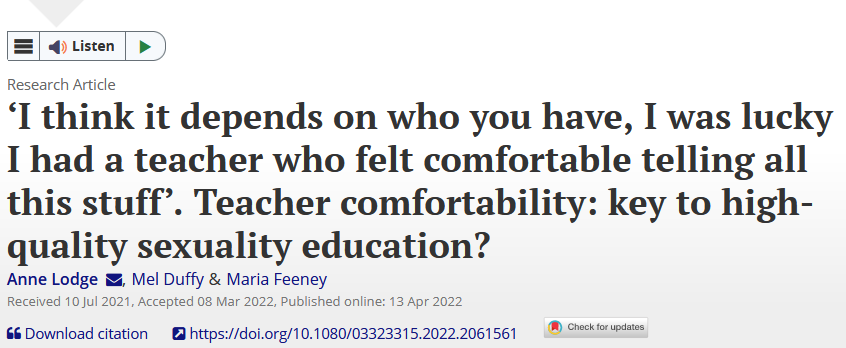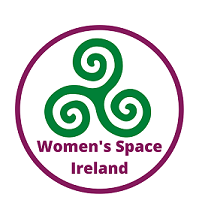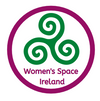Anne Lodge
Women's Space Ireland Event, Saturday 12th November 2022
Introduction
Good afternoon. First can I thank the organisers for inviting me to be part of this panel. Second, can I say what a genuine honour and privilege it is to be part of this panel with these outstanding women who each continue to contribute so much to feminism and to debate about gender identity ideology. I am here to talk about how we open debate about gender identity ideology in our schools and in our education system.
I have been a teacher educator for nearly a quarter of a century now. Over the years I have served on a lot of committees of various types including the Department of Education & Science and the National Council for Curriculum & Assessment as well as on various education bodies within the Church of Ireland.
I am also an Anglican priest. For those of you who are familiar with the Church of Ireland, you will be aware that it is a minority church in this jurisdiction, that it is an all-island church and that it probably contains as many views on all sorts of values issues as it has members. It is organised democratically so we can indulge in good public rows about things like human sexuality and have done so repeatedly over the last decade. Debate and engagement is a core part of its synodical ethic. I would be very much on its liberal wing on a wide range of issues.
It is important that I state here that I am speaking in my own capacity today (as I am when I present at any conference or meeting) rather than on behalf of any institution with which I am linked.
Importance of the field of education
There are several reasons that I accepted the invitation to speak today. First, the debate about gender identity ideology is one that is worth having. Surely a core value in any democratic society is that there is an openness to hear a range of voices and views, that debate about such diversity of perspectives is a good thing? Yet, this is a debate that I am becoming increasingly uncomfortable about because I have the sense that we are not supposed to talk about gender identity ideology, to ask questions about it, to voice criticisms of it.
I find that, with academic colleagues for example, there can easily be an assumption that everyone holds the same views about the inherent progressiveness and positivity of gender identity ideology rather than recognising the validity of concerns raised by those of us deemed ‘gender critical’ because we recognise the existence and the impact of material biological reality and simultaneously reject narrow sex-based stereotypes.
I have come across assumptions among some post-grad students and academic colleagues that children and young people may need to be supported and defended against their parents because those parents are not progressive with regard to gender identity ideology. There has been the assumption that we are all ‘on the same page’ in this regard, all with shared commitments to a particular type of progressiveness and we are driven by a desire to be kind. These assumptions are somewhat of a surprise in a university environment because third level institutions are supposed to be places of robust debate, wide-ranging expertise and a diversity of perspectives.
I have found myself slightly nervous when ‘outing’ myself as holding gender critical views to colleagues or expressing such views on a committee, wondering how will others react? I strive to be honest about my genuine concerns that identity politics has over-shadowed older concerns about social class inequality, about inequality between the sexes, about marginalisation of those with disabilities etc. It is not as if those older inequalities have been solved. I have spoken to people in other professions and found that the fear of expressing gender critical views or asking questions is much greater in the field of psychiatry for example. I also realise that I have the luxury of not being precariously employed or at the beginning of a career – a luxury many others do not have.
SPHE
My second reason for saying ‘yes’ is because of how important the field of education is with regard to gender identity ideology. The idea of fluid gender identities that are not necessarily tied to biological sex is now included in the SPHE curriculum from an early stage so that very young children are learning that male-bodied people might be girls or women and female bodied people might be boys or men based on how they feel rather than based on the concrete reality of their physical bodies. Let me give you a few examples of how this happens.
The SPHE materials recommended for the teaching of children from infant classes upwards about their own identity includes a list of recommended books. The use of story books and narratives is a really important component in the primary school classroom. The list of recommended books for the primary school includes a very young children’s book called A Fox Called Herbert, a story about a rabbit who identifies as a fox, whose mother is presented as the problem because she tries to help him accept the material reality of his being a rabbit rather than pretending to be the fox he wishes he was. There is another book called George for children in the middle years about a little boy who knows he is a girl even though everyone else knows he is male. These kinds of story buy into the ‘born in the wrong body’ concept that has now even been abandoned by groups like Mermaids. My concern is the psychological confusion that this idea gives rise to for young children.
Please let me be very clear that I think a great many of the books on the SPHE recommended list are great and I recommend them to my student-teachers. There are excellent books about different types of families, about racism, about environmental activism, about coming to terms with being gay or lesbian, with being gender non-conforming etc. I recommend all of these books and others like them. My specific concern is that the long list includes some books that peddle a particular ideology that some people are born in the wrong body when we have only the body we were born with and we should be helping children (a) to accept themselves as they are and (b) to be allowed and encouraged to be as non-conforming to stereotypes as they wish to be.
Education structures & stakeholders
My third reason for saying 'yes' is that I have insights based on my professional experience that I want to share with you about the operation of the education system in Ireland.
From an ownership and control perspective, we in Ireland have a fairly complex education system. Much of the school system at primary and post-primary level is not in State ownership or direct control, though it is mainly State-funded. The State sets policy, the curriculum, pays the teachers and other staff so is a very powerful player in the provision of education. However, other bodies that operate schools have a legal entitlement to set out their own ethos or culture and to protect it. Those bodies may be religious or secular.
Because of the complexity of the structures of Irish education, there are a plethora of bodies that have a voice in, or at least some purported input to the making of education policy. Aside from the Department of Education and Skills itself, there is a range of agencies and policy bodies such as the National Council for Curriculum & Assessment. There are external bodies who are recognised as education partners. That list includes the teacher unions, the management bodies such as the Catholic Primary School Managers’ Association, the General Synod Board of education, Educate Together and the Education and Training Boards, among others. It also includes the parents’ associations and the principals’ bodies. There is also a long list of bodies recognised as wider stakeholders.
The Education Partners are approached by the Department of Education & Skills for consultation. They are approached when the NCCA is putting together consultation meetings about curriculum development or a development committee for a specific subject for example. These bodies are asked to nominate possible members of such committees and the NCCA selects from those nominees. Many of us on the General Synod Board of Education are volunteers. The same applies to parents involved in the National Parents’ Council Primary or Post-Primary.
Why does all this matter? Well, it has to do with lobbying by NGOs. The Department and the education stakeholders are all targeted by NGOs for lobbying, a perfectly legal and legitimate activity. It is easy to ascertain which stakeholders and agencies have been successfully lobbied by some of those NGOs because they are promoting links to certain websites and organisations, they have promotional material that emphasises a particular view of gender for example, and have committed to gender identity ideology. The INTO, the NCCA, the DES itself, the ETB and Educate Together all seem to have taken those views and links on board. It is interesting to note that the faith-based school management bodies are much slower to take on to these so-called progressive ideas about gender identity ideology.
And why does this matter for the bodies and individuals here today? The reality is that women’s groups and those holding legitimate gender critical views also need to lobby the same State agencies and stakeholder bodies in order to ensure that there is more than one voice and one perspective in the public domain on this issue. When doing so, gender critical people will have to complete with very well-funded NGOs with paid employees rather than a group of willing volunteers. Otherwise there is no alternative perspective being given. We are all well aware that the National Women’s Council has taken on board the views and arguments of other lobby groups so the voices of people in this room are not being heard by such policy-makers and influential stakeholders.
Parents
It is really important that we are aware of the fact that parents have rights regarding their children’s education and their children’s care as laid down in the Irish Constitution. The Constitution, which was written in 1937, is the bedrock of our legal system – new legislation cannot be signed into law if it is at odds with the Constitution. Furthermore, our elected legislators cannot change the Constitution. Only the citizens of the country, who are deemed sovereign by the Constitution, can change its contents via Referendum.
Article 42.1 states that: The State acknowledges that the primary and natural educator of the child is the Family and guarantees to respect the inalienable right and duty of parents to provide, according to their means, for the religious and moral, intellectual, physical and social education of their children.
Schools do not have an entitlement to undermine the rights of parents vis-à-vis their children but this is not what some lobby groups advise schools. There are lobby groups in Ireland that have recommended to schools that they exclude parents from knowledge of aspects of their children’s lives or identities particularly with regard to gender identity ideology. This flies in the face of the Constitutional rights of parents in Ireland, and schools may be walked into illegality by listening to such inaccurate advice.
Article 42.4 states that: The State shall provide for free primary education and shall endeavour to supplement and give reasonable aid to private and corporate educational initiative, and, when the public good requires it, provide other educational facilities or institutions with due regard, however, for the rights of parents, especially in the matter of religious and moral formation.
Article 42.4 means that parents are entitled to withdraw their children from teaching of religious education content. The right of parents to withdraw and be consulted about Relationships and Sexuality Education was outlined clearly when the original RSE programme was devised in the mid 1990s. What is less clear is whether parents have rights to object to content in other parts of the curriculum such as gender identity ideology content in SPHE for example.
It is really important that everyone is clear about the rights of parents vis-à-vis the care and education of their children in the Irish context but equally important that people seek to vindicate those rights. Again, this is partly an awareness issue.
RSE
I just mentioned Relationships and Sexuality Education and indicated that the programme was developed and introduced in the mid-1990s. At that point it was very clearly stated that the RSE content was to be agreed locally between the school and the parents, taking account of the ethos of the school. In reality, there has been limited consultation by schools with parents in many cases but there is also a real wariness on the part of schools of potential objection by parents.
I did a study with colleagues about the views of parents, teachers, principals and students of their experience of RSE in post-primary schools.

Among our findings was that the main chilling effect for RSE content was not school ethos but fear of potential objections from parents. This was particularly the case when it came to including content about homosexuality or other material deemed to be potentially controversial.
Interestingly, the schools were not reporting actual objections by parents. The fear that such objections might happen caused anxiety. We found similar anxiety about sexuality education reported in international research so Ireland is by no means unique in this regard. What our findings show me is that school personnel are aware that parents have rights but are not entirely clear how to engage with parents in areas that might lead to conflict, so in some cases schools may either ignore certain content or in other cases may not engage with parents in the way that the original programme roll-out intended.
In 2018, the Minister instructed the NCCA to engage in a review of RSE to ensure that it was fit for purpose and meeting the needs of young people. The NCCA was tasked with focusing on the following areas for particular development:
• 1. Consent, what it means and its importance
• 2. Developments in contraception
• 3. Healthy, positive sexual expression and relationships
• 4. Safe use of the internet
• 5. Social media and its effects on relationships and self-esteem
• 6. LGBTQ+ matters.
From my perspective, these updates to RSE are essential. The findings of both the NCCA’s 2019 report and the research I was part of showed that the majority of teachers, students, parents and principals were generally agreed on the need for significant updates in all of these areas. However, I do draw attention to the final bullet point – creating acronyms that keep changing or lengthening can cause confusion. The ‘Q’ is also contested – not all those who are gay. lesbian or bisexual agree on this word – some embrace it while others deeply dislike it. The + means that there may be more included but unnamed, or more to come. It causes uncertainty.
Gender identity ideology did not fall within the remit of this review – it was already included in the SPHE curriculum.
The NCCA sought nominations for membership of the Development Committee from among the education stakeholders including teacher union, education management bodies and parent bodies. Those who were appointed to the development committee worked on a part time, voluntary basis for over 18 months to advise the NCCA staff putting together toolkits.The group was split in two – one group worked solely on the primary curriculum material and the other group was solely focused on post-primary. There was a range of views represented on the development committee.
At the conclusion of the work putting together the toolkits, the NCCA opened up a further period of consultation. The focus of that consultation is likely to be on the six listed areas that the Minister tasked them in making recommendations about. The NCCA devises materials and a position. It gives recommendations to the Minister. Ultimately it is up to the Minister to make the final decision.
The NCCA has not recommended the development and rolling out of mandatory RSE content, which follows the original recommendations in the mid-1990s. On the NCCA’s website it states:
Each resource should be considered in respect to the particular needs and interests of children, their parents, the wider school community, and your school’s SPHE and RSE policies.
We should be positive about the fact that this statement includes an expectation of flexibility in the SPHE curriculum, which is where the gender identity ideology material can be found. It is also helpful to note the recommendation that both the rights of parents and school bodies to determine their ethos are among the factors influencing the content of SPHE/RSE locally.
Concluding comments
I will conclude by drawing to your attention the key points I want to emphasise this afternoon.
• First, education is of real importance in both the transmission and the contesting of gender identity ideology.
• Second, parents have Constitutional rights here in Ireland to be recognised as the key educators and carers for their own children. This may be honoured more in the breach than in the observance at times, but nonetheless parents have rights to be consulted about matters to do with both belief and morality. The question is whether parents are fully aware of this and whether they are exercising their rights in this regard.
• Third, the structure of our education system gives significant influence to a range of education stakeholder bodies. Many of these bodies are made up of volunteers and some paid personnel.
• Fourth, lobby bodies are influencing the Department, its agencies and some of the education stakeholder bodies through lawful and often well-funded lobbying activity. It is really important that bodies with alternative and equally lawful perspectives also get the chance to put their views across and to lobby in order to be heard.
I realise that it is a big ask but unless those of us with gender critical views make our voices heard and particularly do so in a targeted way, lobbyists who speak up for gender identity ideology will dominate thinking and policy-making touching on this issue. It is equally important that the message is communicated to parents that they have Constitutional rights in terms of their role as primary carers for, and educators of their children. They have the right to have an input into what their children are being taught, especially around beliefs and values issues.
I fully realise that there are people in this room who are already doing incredible work in this space and want again to acknowledge their commitment.
Thank you.


